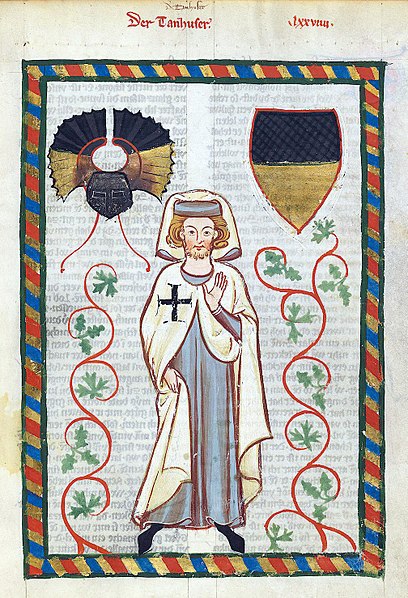The Prussian Crusade was a series of 13th-century campaigns of Roman Catholic crusaders, primarily led by the Teutonic Knights, to Christianize under duress the pagan Old Prussians. Invited after earlier unsuccessful expeditions against the Prussians by Christian Polish kings, the Teutonic Knights began campaigning against the Prussians, Lithuanians and Samogitians in 1230. By the end of the century, having quelled several Prussian uprisings, the Knights had established control over Prussia and administered the conquered Prussians through their monastic state, eventually erasing the Prussian language, culture and pre-Christian religion by a combination of physical and ideological force. Some Prussians took refuge in neighboring Lithuania.
Hermann von Salza, Grand Master of the Teutonic Order.
The Teutonic Order is a Catholic religious institution founded as a military society c. 1190 in Acre, Kingdom of Jerusalem. The Order of Brothers of the German House of Saint Mary in Jerusalem was formed to aid Christians on their pilgrimages to the Holy Land and to establish hospitals. Its members have commonly been known as the Teutonic Knights, having historically served as a crusading military order for supporting Catholic rule in the Holy Land and the Northern Crusades during the Middle Ages, as well as providing military protection for Catholics in Eastern Europe.
The Order's Marienburg Castle, Monastic state of the Teutonic Knights, now Malbork, Poland
Hermann von Salza, the fourth Grand Master of the Teutonic Knights (1209–1239)
Tannhäuser in the habit of the Teutonic Knights, from the Codex Manesse
Frederick II allows the order to invade Prussia, by P. Janssen




